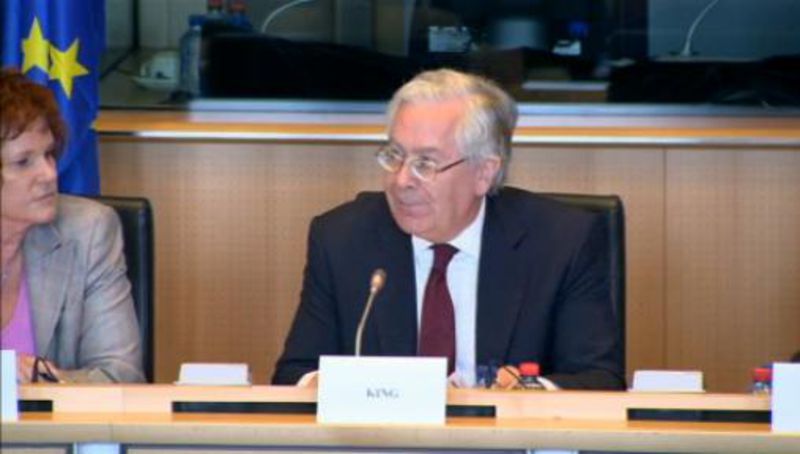Barroso: No country can be expelled from euro zone
Ralitsa Kovacheva, March 20, 2010
 The European Commission is against changes in the Lisbon Treaty, in order to create a European Monetary Union as Germany proposed, the European Commission president Jose Manuel Barroso said in an interview with France 24, quoted by EurActiv.
The European Commission is against changes in the Lisbon Treaty, in order to create a European Monetary Union as Germany proposed, the European Commission president Jose Manuel Barroso said in an interview with France 24, quoted by EurActiv.
“According to the Lisbon Treaty, no country can be put out of the euro zone," Barroso said, responding to the German position that a mechanism for an expulsion from the eurozone should be found for all countries that violate economic discipline. Although he does not presume expulsion Barroso thinks, that supervision on eurozone countries should be strengthened.
"This is what we are going to put forward next month: some mechanism […] that will guarantee that a country can in fact respect the fundamental principle" of fiscal stability.Solidarity is a two-way street. When a member state is a member of the euro, it also has obligations towards the others. It is not only to receive some support: it is also to respect the rules that have been commonly agreed."
Asked what might happen if Greece did not receive financial aid from the EU and turn to the IMF instead, Barroso said: "What I want to remind people is that Greece and all the member states of the EU are members of the IMF. In fact the EU member states are by far the biggest source of revenue for the IMF. So it's not a question of prestige, it's a question of seeing what is the best way to respond to the situation."
Barroso pointed out that all EU countries, including Germany, stood ready to help Greece, in case it needed it, and stressed that Athens had not yet asked for financial support.
In its current version the Lisbon treaty provides possibilities for tighter surveillance and closer ties between eurozone countries, Olli Rehn said, a European Commissioner for Economic and Monetary Policy in a speech at the European Economic and Social Committee.
Reminding Eurogroup`s decision on a coordinated action for Greece, which could swiftly be activated in case of a need, he added:
"The Commission is ready to do its part and to propose a European framework for coordinated and conditional assistance. The Greek crisis has demonstrated the need for reinforced economic policy coordination in the euro area. This was recognised in the Lisbon Treaty, which provides the legal base for this in its Article 136, which we now have to fill with life. The coordination mechanism must encompass a tighter surveillance of macroeconomic imbalances in general and more binding policy recommendations than has been the case so far. The Treaty provides a sufficient legal basis for strengthened coordination in this regard, too".
In the meantime, Germany seems to have changed its position and is now willing to support a possible decision of the Greek government to ask the IMF for help, the EUobserver reported. Earlier this month, defending the idea of an European Monetary Fund, the German chancellor Angela Merkel said that in the future European countries would have to solve their problems without IMF's interference. The German minister of finance Wolfgang Scheuble was first to raise the issue of a European Monetary Fund. A detailed model of the institution was presented by Daniel Gros From CEPS and Thomas Meier from Deutsche bank. It provides a mechanism for mutual assistance for troubled counties, as well as procedures for bankruptcy and expulsion of countries, permanently violating the fiscal discipline.
 | © European Union
| © European Union | © European Union
| © European Union | © European Union
| © European Union